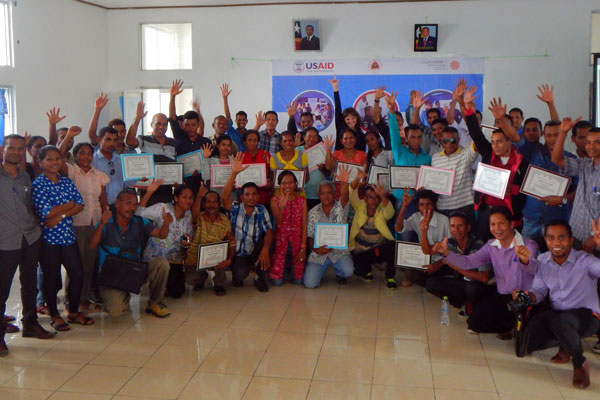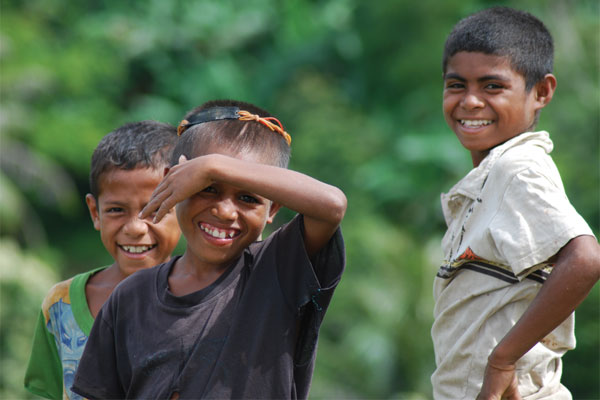Timor-Leste is a nation in transition. Having gained independence only 15 years ago, Timor-Leste’s democracy has taken hold despite political instability, a weak economy and a fledgling justice system. Nearly 80% of citizens live in remote villages (sucos) and have limited access to the centralized government. This has meant that sucos, organized into councils and led by an elected Chief, are crucial in communal decision making, dispute resolution and meeting the needs of the people.
Over the last four years, Counterpart International, through the USAID-funded Mai Munisipiu (formerly Ba Distrito) Project, worked with 100 Suco Councils in Baucau, Covalima, Ermera, Liquica and the Special Administrative Region of Oecusse – Ambeno. Using a holistic approach, our efforts focused on building the capacity of Suco Councils to improve their responsiveness to the people of their communities and strengthening the effectiveness of civil society organizations to engage and advocate for services, like healthcare, education and more…
Carolyn Tanner, Counterpart International’s Chief of Party in Timor-Leste, explains, “It’s tremendous to see what can be achieved when civil society and government work together to achieve a common goal. The citizens of Timor-Leste have a lot to contribute and continued efforts to reinforce equal and inclusive participation will result in stronger communities for everyone.”
Strengthened Leaders, Strengthened Communities

Suco councils, CBOs and Liquiça Municipal Administrator celebrated their success in completing 6 suco trainings and organizational assistance by Counterpart and its local partners.
For the last three years, the program provided trainings on leadership, communication, and project management to over 500 Suco Council members. Suco-to-suco exchanges and municipal-level forums were hosted in each community to encourage knowledge sharing and collaboration between the Councils. A crucial part of these exchanges was the participation of Timorese civil society organizations. By engaging them in activities such as community forums, citizens were given the chance to voice their opinions directly to local leaders throughout the Suco Councils’ municipal planning processes.
The results speak for themselves….
Community and Government Partnerships for the Future

Children from a rural Suco (village) smile for the camera in Timor-Leste
For many communities, harvesting enough food was a struggle because they lacked access to vital tools. Working together with the Minister of Agriculture at a Suco-Community forum, 41 communities developed a schedule to share a tractor that was generously provided by the government. With this new tractor, the land was easily cultivated, improving the planting process. Encouraged by this success, 23 of the communities then reached out to the Ministry of Agriculture at another forum to get new seeds that would improve their harvests and the health of villagers.
In another area, thousands of villagers gained access to clean water when three sucos worked with municipal representatives from the Water and Sanitation Department to get new piping into their villages. However, there was one suco where the Water and Sanitation Department officials could not reach. So the Suco Council, using the project management skills learned from the Mai Minisipiu trainings, mobilized together to build their own access – successfully using bamboo for piping!
Moving Toward the Future
“Some very important things I learned were how to lead a meeting and share ideas and information with the aldeia (sub-village) chiefs in Suco Council meetings, how to organize meetings and how to involve our community partners in them,” said Suco Chief Açumano (a newly elected village chief,) Mr. Bernardino Martins.
Undoubtedly, Timor-Leste will continue to face challenges. But with stronger networks between the Suco Councils and local communities, our partners now have the skills to work together and build a stronger future. Inspired, engaged, and working toward their inclusive national vision, they are staying true to one of their most famous sayings: ‘with willingness, there is possibility.’




